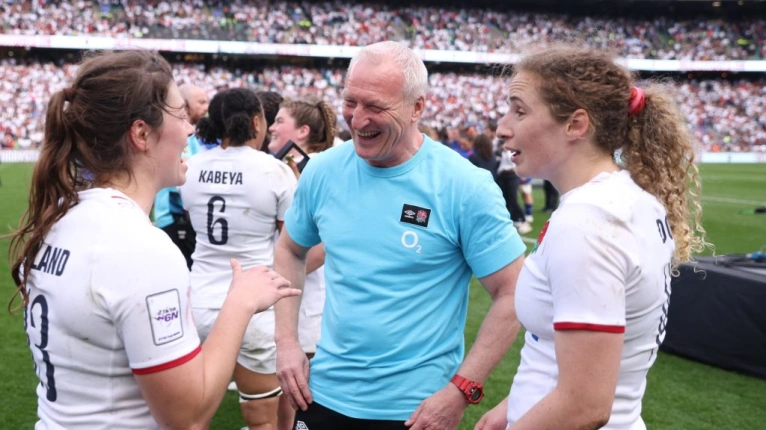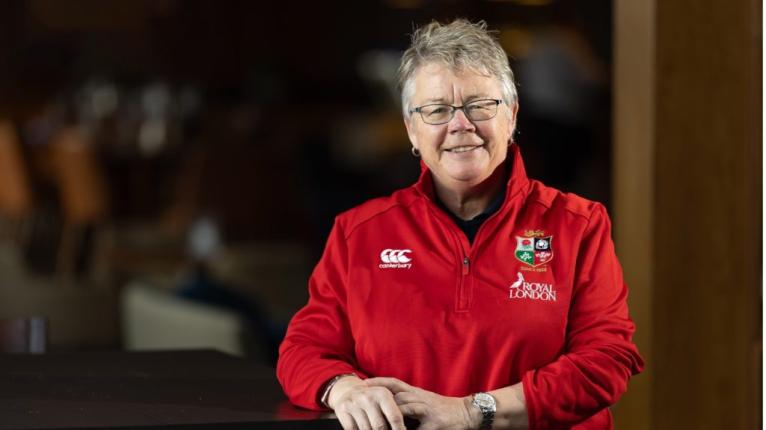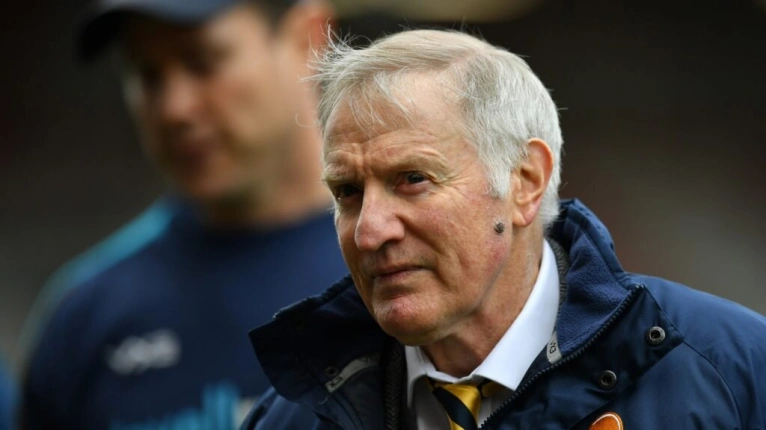Improvement. Development. Pathways. Communication. Leadership. All of these concepts are applied on a daily basis. However, not every rugby nation has access to the same resources or the necessary expertise to advance on its own, often requiring external support to reach the next level.
And that’s precisely the idea behind the consulting job, an art employed by World Rugby since the 1990s. But what is a rugby consultant? Why do they matter, and do they really add significant value to the countries they are assigned to help?
For most of the rugby community these consultants are shrouded in mystery, especially because they never take the centre stage or claim the protagonist role reserved for players and resident staff. But to try and unravel this mystery, there’s no one better than veteran coach Alan Solomons, and current World Rugby high performance consultants Carol Isherwood and Simon Middleton.

Solomons consulted across the globe throughout the 1990s and 2000s, including an enjoyable stint with the USA Eagles. The former Western Province, Northampton and Ulster coach is particularly proud of his work with Portugal and Namibia, helping them prepare for the 2007 World Cup.
“Our focus was to improve the standard of rugby in those countries,” says Solomons, a former Cape Town lawyer who coached across the world and was a Springbok assistant to Nick Mallett during a record unbeaten run.
“I would go there, follow their day-to-day affairs and then write a report to the International Rugby Board [World Rugby’s name until 2014] as to what I found on the ground, and which areas could we improve.
Competition is what drives development and that’s why you see pushes for nations like Georgia, Portugal and Spain to have the chance to play more regularly in top competitions.
“That’s the point of all this. All those consultants came from nations where rugby is highly developed and brought that experience and expertise with them, passing down the knowledge. It is about improving, accelerating the development and making a strong contribution. You have to see the big picture. The shop window will always be your national team, and if it is doing incredibly well, then the majority of the youngsters will want to play and get that to that level.”
“In Portugal, [former Tonga head coach] Adam Leach and I came to assist coach Tomaz Morais, giving technical input and advice. The same method was applied to other nations, and I think it made them more ready to tackle the World Cup.
“The idea was to appoint coaches on a permanent basis, to help those nations improve their playing level and knowledge. Competition is what drives the development of players, coaches, referees and administrators, and that’s why you see pushes for nations like Georgia, Portugal and Spain to have the chance to play more regularly in top competitions.”
Isherwood, one of the founders of the women’s RFU and the first chair of the British and Irish Lions Women’s Committee, shares Solomons’ idea.

“The key thing we are focused on was to narrow the gaps between the teams, to make the game as competitive as possible, especially in World Cup years.
“The way we can do that is by building the capability of our workforce. Generally, the consultants when they go into a tournament or union the idea is to train those who are already there, to upscale and mentor them so they can improve and collect additional knowledge. Mostly it is tactical and technical work, but we also focus on communication and leadership skills.
“It is fine to work from the top down, but how do you support unions in the other work? Money isn’t always the main issue or the answer, sometimes planning properly and delivering is also important. “If they don’t do that, we end up with no top end of the triangle. When I do my bit of setting systems up, the legacy is if all of it carries on without you. The key challenge is how do you train people to really understand what the right things are, and how they accomplish those things to help their own system improve.”
Highly successful former Red Roses supremo Simon Middleton says the link between these nations and World Rugby is often “already established”.
The lesson I learned the quickest was to adapt my communication skills, especially concerning change and making suggestions, as I am now in a role that I can’t simply dictate it.
He adds: “For instance, if I was going to work with the Netherlands, they would first discuss with World Rugby about having some sort of support, and then I would be added to the communication stream. Then I would have a direct conversation with the director of rugby and/or head coach to understand the programme, what might be missing, their concerns, opportunities, weaknesses and ideas. In between the conversations we also try to understand what the timings are and where we can focus first.”
Learning the ethos, understanding the people, and getting to know the local rugby history are fundamentals of the job, alongside the knowledge of how to communicate. Middleton, currently high performance advisor to the Japan Women’s team, has immersed himself in an unfamiliar culture to aid the Sakura.
“You learn about those nuances all the time, but it took around a year. Some things jump out immediately like the work capacity which is spectacular with the Japanese players. You can challenge them with anything, and they will work relentlessly to achieve it.
“The lesson I learned the quickest in consultancy was to adapt my communication skills, especially concerning change and making suggestions, as I am now in a role that I can’t simply dictate it.
“I had to learn how to advise improvements to the staff without overstepping. Lesley McKenzie almost singlehandedly built the entire programme, and it was vital for me to learn how to communicate my ideas. It really gave me a great chance to reflect on how to communicate with people, how you show you are very respectful to what they have done and what’s in place.”

But there are other challenges and obstacles to surmount, as Isherwood explains.
“When I was first asked to do this role, I did some research about why there weren’t more women in those high-performance levels. If you look carefully, you will notice it doesn’t only happen in rugby, which tells us the issues aren’t just around female coaches but in the way society works, in how systems and processes work. The way the system works can often act as a barrier for women to get involved.
“The internship programme we have done has really helped achieve not only the things we work on with coaches, like competence and confidence, but also their credibility and visibility. They get seen by coaches, staff, players and media, normalising women in those roles. These programmes have allowed us to address that and make a real shift in the way the coaching model works. We are starting to get results. Look to the SVNS, where we have now six female coaches in the twelve teams involved in the series.”
There may be a perception these consultants, transient by the nature of their jobs, do not forge lasting relationships with the people and the places they visit. But there is often a deep bond between the advisors and those they join forces with on the ground.
If you care about the person first, they will want to collaborate with you and get involved.
“I can’t work with people without having an emotional connection,” Isherwood begins. “I’ve worked in rugby for over 40 years and mostly as a volunteer, and it’s been the passion of my life. It is a privilege to be involved right now at this level.
“People make the game. People make things happen. Simply put: I work with a range of people around the world who work with coaches, and those coaches work with other coaches. If you care about the person first, they will want to collaborate with you and get involved. Doing this will not only allow for more women to coach but also will make more girls interested in playing.”
Solomons, having been involved with so many programmes, explains how emotionally tough it is to let go and move on to the next chapter.
“It is tough. You have to look at it like professional coaches do. Wherever I coached I became attached to the players. What I did was to retain some connection and took an interest in what they were doing. But it’s difficult. I loved to travel and discover new environments and cultures, understand their worries and hopes. You will always keep a relationship with them.”
In the world of rugby there are scores of consultants working to progress people and nations, to share knowledge and skills, to inspire even themselves to innovate and find solutions in the harshest of environments.
They might not be seen, but their work has made a difference to the game and it will keep pushing boundaries to allow others to reach new heights.


Who is doing his best for rugby développement in Georgia, Spain and Portugal ? World Rugby or Top 14 ?
The Top 14 hands down. Having said that, especially ProD2 clubs are looking for talent outside France because the big clubs sign all the top French talent. Here in Holland we see a lot of young players head to France, with Aurillac and Agen the clubs that scout a lot here. Off course they are looking for good players first, but they also bring expertise and support to local clubs. Players that don’t make it in France, come back and raise the bar here. It’s a win win. The academies here certainly are on the radar of French clubs.
Portugal, Spain and the Netherlands are the best U20 nations in the REC. They are the countries to watch.
I’m a Kiwi and have to say that tier 1 nations like NZ do nothing for tier 2 nations. WR doesn’t do much either.